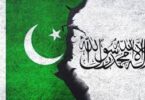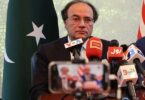Recently, the Khyber Pakhtunkhwa Assembly has been informed by the relevant quarters that 4.7 million children including girls between the ages of five to sixteen years are out of school in the province. According to the details, 74.4 percent of them are girls and 38.5 percent are boys. The district-wise statistics show that 66 percent of children in North Waziristan, 63 percent in Bajaur, 61 percent in South Waziristan, 51 percent in Mohmand and Khyber each, and 47 percent in Kurram and Orakazai each are not attending schools. Provincial Minister for Education claimed that the government was taking measures to improve the literacy rate in the province and has started enrollment drives.
Unfortunately, over the decades, the rulers’ rueful priorities and lack of interest had been the real reason for the low literacy rate in the country.
Historically, education had not been the agenda of any political leader or military dictator who ruled the country for over half of its life. The economic survey of Pakistan 2021-22 has revealed that cumulative expenditures at both provincial and federal levels remained below 2 percent of the GDP. Similarly, children’s education had not been a preference for poor masses who usually pushed their kids toward child labor at an early age which ultimately ends up in poverty, crimes, extremism, and deterioration of the economy.
The successive governments introduced multiple educational reforms, dress codes, and cosmetic measures but those steps neither improved education standards nor increased the literacy rate, and end child labor in the past. In fact, the promotion of education is a collective responsibility of the government as well as society and parents. The government needs to provide education facilities while parents need to send their wards to Schools and society must discourage child labor, so no children remain out of school.
Presently, education is a highly ignored and most politicized sector of our national life. Despite massive funding and scholarships from UNICEF, USAID, and other western nations, Pakistan’s literacy rate is hardly 63%, less than India, Bangladesh, and Sri Lanka, which is a highly deplorable and shameful fact. There is an urgent need that our leaders must adopt practical measures instead of politically motivated announcements to promote education while parents and society must fulfill their responsibility to make their children educated, useful and responsible citizens of the country.






